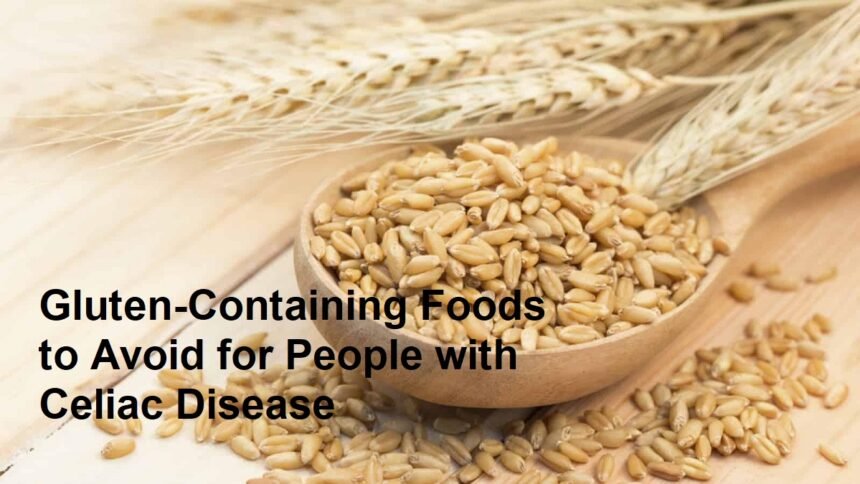Celiac disease is an autoimmune disorder in which the ingestion of gluten—a protein found in certain grains—triggers an immune response that damages the small intestine. For individuals diagnosed with celiac disease, strict adherence to a gluten-free diet is essential to prevent symptoms and long-term health complications. Understanding which foods contain gluten is crucial for effective management.
What is Gluten?
Gluten is a composite of storage proteins found primarily in wheat, barley, rye, and their derivatives. It gives dough its elasticity and helps it rise and maintain shape. While gluten is harmless to most people, those with celiac disease experience inflammation and damage to the intestinal lining upon consuming gluten.
Common Gluten-Containing Foods to Avoid
- Wheat and Wheat-Based Products Wheat is the most common source of gluten. Foods made from wheat flour include:
- Bread, rolls, and buns
- Pasta and noodles
- Cereals and crackers
- Baked goods such as cakes, cookies, and pastries
- Some sauces and gravies thickened with wheat flour
- Barley Barley is often used in:
- Malt (found in malt vinegar, malted milk, and beer)
- Soups and stews
- Brewer’s yeast
- Some cereals and health foods
- Rye Rye is less common but still contains gluten. It is found in:
- Rye bread and crackers
- Some cereals
- Rye beer and whiskey
- Triticale A hybrid of wheat and rye, triticale also contains gluten and is used in some breads and cereals.
Hidden Sources of Gluten
Gluten can also be present in less obvious foods and products, including:
- Processed meats (sausages, deli meats) that use gluten as a filler or binder
- Salad dressings and sauces thickened with wheat flour
- Soups and broths containing barley or wheat-based thickeners
- Candy and chocolates with malt flavoring
- Some medications and supplements that use gluten as a binding agent
Gluten-Free Alternatives
People with celiac disease can safely consume grains and products made from:
- Rice
- Corn (maize)
- Quinoa
- Buckwheat
- Millet
- Amaranth
- Sorghum
- Gluten-free oats (certified to avoid cross-contamination)
Importance of Reading Labels
Because gluten can be hidden in many processed foods, it is vital for individuals with celiac disease to carefully read ingredient labels and look for gluten-free certification. Cross-contamination during food processing is also a concern, so choosing products from trusted sources is important.
Conclusion
Avoiding gluten-containing foods is essential for managing celiac disease and preventing damage to the small intestine. Wheat, barley, rye, and their derivatives are the primary sources of gluten to avoid. Awareness of hidden gluten sources and careful label reading can help maintain a safe and healthy gluten-free diet.









